THE “BENEFITS” OF GLUTAMINE SUPPLEMENTS DEBUNKED
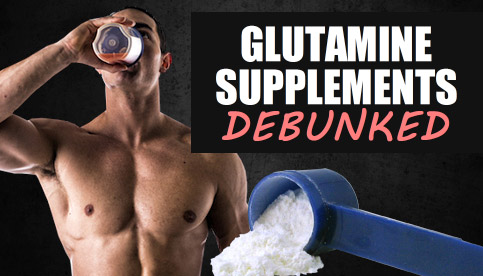
Glutamine has been considered as a “bodybuilding staple” for many years and is often mentioned in the same breath as other proven supplements such as whey protein, creatine and fish oils.
Although I don’t expect to convince those who have been using glutamine for years and swear by its effects, in this post I’ll be providing an evidence-based review of why l-glutamine supplements are almost certainly a waste of money for the average person trying to build muscle and burn fat.
What Is Glutamine?
As you probably already know, protein is made up of smaller individual building blocks called amino acids. Glutamine is the most abundant amino acid in the body and actually makes up about 2/3 of those found in muscle tissue.
Glutamine is a non-essential amino acid (meaning the body can produce it on its own) which becomes “conditionally essential” under periods of particularly high stress when the need for glutamine may exceed its availability.
Supplement companies sell isolated l-glutamine products in pill and powder form and promote it as having a wide variety of uses for those following a muscle building or fat burning program.
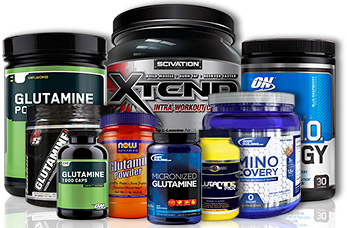
The 4 main “glutamine benefits” you’ll typically hear about are as follows…
1) Increases protein synthesis for faster muscle growth.
2) Strengthens the immune system for better recovery.
3) Boosts growth hormone secretion.
4) Helps to replenish post-workout muscle glycogen levels.
If all or even some of these claims were true, then glutamine would certainly be a worthwhile supplement to include as part of your plan.
But are these supposed glutamine benefits actually backed by the research? Is glutamine effective as a muscle building and fat loss aid?
Let’s break it down in this glutamine review…
Does Glutamine Work? The “Benefits Of Glutamine” Examined
Claim #1: Glutamine supplements increase muscle protein synthesis.

Muscle protein synthesis (“MPS” for short) is the central driving force behind the entire muscle building process. It involves the repairing and replacement of damaged muscle tissue (as a result of training) with larger and stronger muscle proteins that are able to handle stress more effectively than before.
Although one of the primary “glutamine benefits” you’ll hear about involves an increase in muscle protein synthesis, there is simply no human research at all to support these claims.
Glutamine studies in rats as well as in vitro studies have shown a dose-dependent increase in protein synthesis as a result of glutamine supplementation, but human studies conducted on healthy individuals have shown no significant positive effects.
This particular study showed no measurable benefits when glutamine supplementation was combined with resistance training, even when using a very large dosage of 900mg/kg per lean mass (equal to around 60 grams for a 175 pound individual with 15% body fat), which is far higher than the standard 5-20g daily dose that is usually recommended for bodybuilding purposes.
In comparison with the placebo group, those taking the glutamine did not achieve any greater increases in strength, saw no improvements in body composition, and experienced no changes in muscle protein breakdown.
Studies have also examined the effects of combining glutamine with creatine, as well as glutamine with a protein/carbohydrate drink, with the added glutamine producing no measurable changes in the results.
It IS in fact true that glutamine supplementation can improve protein synthesis in humans, but only in those who are critically ill and who are suffering from a high degree of clinical stress. In these cases, glutamine does improve nitrogen balance and aid in recovery.
However, clinical stress and exercise-induced stress are two very different things, and an hour in the gym cranking out bench presses and tricep extensions doesn’t place nearly enough stress on the body to warrant glutamine use for this purpose.
Bottom Line: For those dealing with trauma, burns, surgeries or certain muscle-wasting diseases, glutamine may have legitimate use for increasing protein synthesis. For otherwise healthy people who are simply trying to boost their rate of muscle growth, glutamine is not going to benefit you in this area.
Claim #2: Glutamine supplements strengthen the immune system for improved recovery.
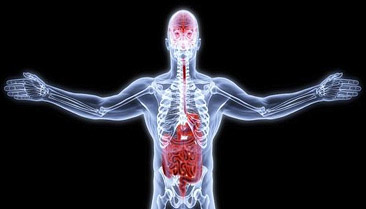
Glutamine plays an important role in immune function by providing fuel to immune cells such as lymphocytes and macrophages. Although the body can produce glutamine on its own, it can become “conditionally essential” under periods of high stress where the production of glutamine can’t keep up with the body’s needs.
For that reason, one of the supposed benefits of glutamine is its role in improving immune system function following intense workouts as a way of improving recovery and preventing overtraining. This would allow you to train at higher frequencies and would increase overall workout quality as well.
However, it’s been shown that short term high intensity activities like weight training only produce a minor, temporary effect on certain cells of the immune system and have no significant effects on the body’s glutamine levels. (study 1 – study 2 – study 3)
For that reason, mixing up 5 or 10 grams of glutamine powder post workout in order to “boost recovery” is almost certainly not going to be of any help to you.
Now, if you’re an endurance athlete regularly performing exhaustive sessions lasting 2 hours or more, then it may have some practical use. These types of activities do cause a significant decrease in the body’s glutamine levels, and supplementation has been shown to bring these levels back into balance to prevent potential damage to immune cells. (Study 1 | Study 2 | Study 3 | Study 4)
Bottom Line: If you’re an endurance athlete, glutamine might be a useful supplement for optimizing immune system function and recovery. However, if your training plan primarily consists of typical weight training and fat burning cardio sessions, using glutamine post workout or before bed for its “recovery boosting effects” is likely pointless.
Claim #3: Glutamine supplements increase growth hormone secretion.

This is a big one on the list of supposed “glutamine benefits” that many people point to, as a 1995 study did show that 2 grams of oral glutamine can produce a 4-fold increase in growth hormone levels.
This sounds great on paper, and it’s awesome marketing fuel for supplement companies, but the reality is that short-term transient increases in growth hormone are virtually meaningless when it comes to producing actual measurable gains in muscle size and strength.
In order for an increase in growth hormone to have any noticeable benefits in this area, those levels need to be increased by an extremely large margin and must then be sustained over a prolonged period of time. The only way one can truly accomplish this is through the use of exogenous growth hormone itself.
This is why supplements that claim to “naturally” boost levels of muscle building and fat burning hormones like testosterone and growth hormone are a complete waste of money, and glutamine is no exception here.
Bottom Line: Glutamine does produce a temporary boost in growth hormone levels, but the increase is not large enough nor prolonged enough to have any measurable effect on muscle growth or fat loss.
Claim #4: Glutamine supplements help to replenish muscle glycogen levels post-workout.
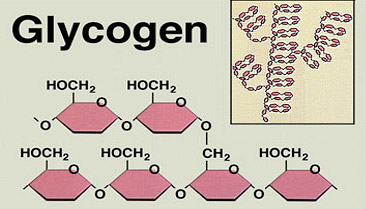
Glycogen is the stored form of carbohydrates in the muscles and liver and is used as an energy source particularly during anaerobic exercises like weight training.
However, glutamine’s ability to replenish post-workout glycogen levels is an irrelevant point to begin with, since there is no necessity for the average lifter to immediately restore glycogen following a standard weight training session in the first place.
Weight training workouts do not drain glycogen levels nearly as much as most people think (usually a maximum of 30-40%), and your regular diet will naturally replenish these levels by the time your next workout comes around anyway.
Within a couple of standard meals after your workout is over, your glycogen levels will automatically restore themselves without you even needing to worry about it. Going out of your way to take certain supplements or carb powders immediately post workout as a means of replacing glycogen is simply unnecessary and a waste of money.
Restoring glycogen post-workout may be a legit concern for hard-training athletes who work out multiple times per day using the same muscle groups, but not for the typical gym-goer following a regular 3-5 day per week training plan where specific muscles are only directly trained once or twice during that period.
In any case, glutamine does not appear to be any more effective at replenishing glycogen levels than basic glucose anyway, so instead of dishing out $40 for a bottle of glutamine every month, you could just eat some fruit or pasta instead.
Bottom Line: Replenishing glycogen levels immediately after a workout is not a necessity, and glutamine doesn’t accomplish this any more effectively than regular carbohydrates anyway.
Glutamine Absorption In The Body: The Nail In The Coffin

Not only is there a wealth of evidence to show that glutamine supplementation does not provide any real benefits to muscle building and fat loss trainees, but it’s also important to note that even the basic task of getting glutamine into your blood and muscles is very difficult to begin with.
The reality is that a very high percentage of orally consumed l-glutamine never even makes it to the bloodstream or muscles in the first place and is instead used up by the intestines for energy.
The percentage varies depending on the exact glutamine dosage used, but the research seems to indicate an average of about 65%.
You could try to counteract this by “mega dosing” your glutamine, but taking upwards of 20-30 grams of glutamine at one time could easily lead to GI distress in some people, not to mention that it will end up costing you an arm and a leg just to keep your monthly supply of glutamine stocked up.
The Final Word On Glutamine Supplements
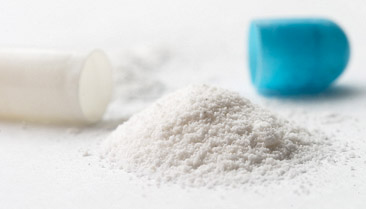
At the end of the day, the claimed “benefits of glutamine” that you see plastered all over the supplement ads may sound good on paper, but they simply don’t hold up in the real world.
This is summed up well in a review of 75 papers examining glutamine supplementation and muscle growth, which concluded…
“Overall, although glutamine obviously plays important metabolic roles within the body, supplementation does not appear to provide consistent beneficial or therapeutic effects, except during certain catabolic situations. Glutamine availability, therefore, does not seem to be a limitation in many challenge situations.”
An important distinction here is to realize that it’s not glutamine itself that is worthless; it’s supplemental glutamine that we’re talking about.
Glutamine is the most abundant amino acid in the body and performs an endless number of valuable functions both related to muscle growth and overall health.
The simple point I’m making here is that dumping 10-20 grams of isolated glutamine powder on top of the 15-20+ grams that most people already consume from their regular diet (plus all of the glutamine that your body produces on its own) is not going to do anything in terms of improving muscle gains, strength or fat loss.
If you found this article helpful, make sure to sign up for your FREE custom fitness plan below...




